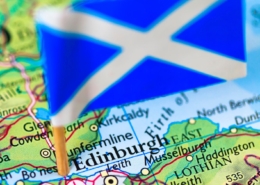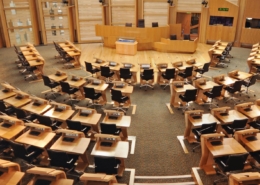FOR YEARS, observers have talked of a crisis, even twilight, of the British state in its current form. I’ve been one of them.
It wasn’t a baseless claim. Between 2014 and 2019, a remarkable convergence of destabilising forces gripped British society. In 2014 Labour MPs and other Westminster insiders streamed north of the border to try and halt an alarming popular rebellion. At the 2015 general election, the SNP evicted Scotland’s unionist representatives from the Commons. Months later, Corbynism toppled the austerity consensus by seizing Labour, the second party of British capitalism and a great, dull weight ever-ready to plug the gaps in Tory rule.
The deepest cut came in 2016 when people across the UK voted to leave the European Union, against the warnings of a stunned establishment. All this in a Britain that had been considered a model of stability. The journalist and former New Statesman editor John Kampfner claimed foreign friends “could not understand how the Mother of Parliaments, a country synonymous with stability and predictability, could have descended into such chaos”.
The claim of the Union’s imminent death has survived the end of the era of disruption. Independence emerged as the battle cry of a real, live social movement. It has since degenerated into a chant, made compulsively and without conviction. It functions as a comforter, warding off recognition of defeat. It is commonly found in the mouths of Remainers still haunted by the UK’s exit from the EU – heedless of the overarching (and sub-democratic) logic of reintegration.
In Scotland this phenomenon served Sturgeon well as insulation from the failures of her government. Her struggling heirs cling to it desperately. The worse the calamity in SNP HQ in recent weeks, the louder each leadership candidate has shouted about independence.
Reckonings are a little more lucid on the side of the establishment. In need of an ideologically satisfying explanation of victories obtained through guile and ruthlessness, the Economist has labelled our current phase a “great moderation”. Corbyn and (laughably) Sturgeon alike were radicals, it said, launching uncouth assaults on good sense. Happily, figures such as Keir Starmer and Sunak are returning the UK to stability.
Growing numbers of independence supporters blame Sturgeon. She embodied this failure of leadership, undermining the cause at key moments. At the height of the British state crisis, she sided with her supposed adversaries, backing the establishment People’s Vote campaign. Her desire to be associated with ruling institutions – the EU, Nato, the Bank of England – forbade any attempt to use the disorganisation of British political life to her movement’s advantage.
But these are the general preoccupations of mainstream Scottish nationalism. Behind the cynical machine-politics of the SNP leadership is another, vaster machine – the political economy and geostrategy of the Atlantic order. A refusal to confront that power will doom any future opportunity for the independence cause.
The scale of the defeat, the divided loyalties at the top of the movement and the disorientation of the nationalist base mean such an opportunity may be a long way off. It may even never arrive.
Scottish nationalism has proved itself profoundly incapable of the task it has set itself. Movements have, throughout history, returned from major setbacks to win victories. They can only do this when they face reality and are prepared for rigorous self-criticism. That must begin with a simple recognition – history has closed the era that opened in 2014.










